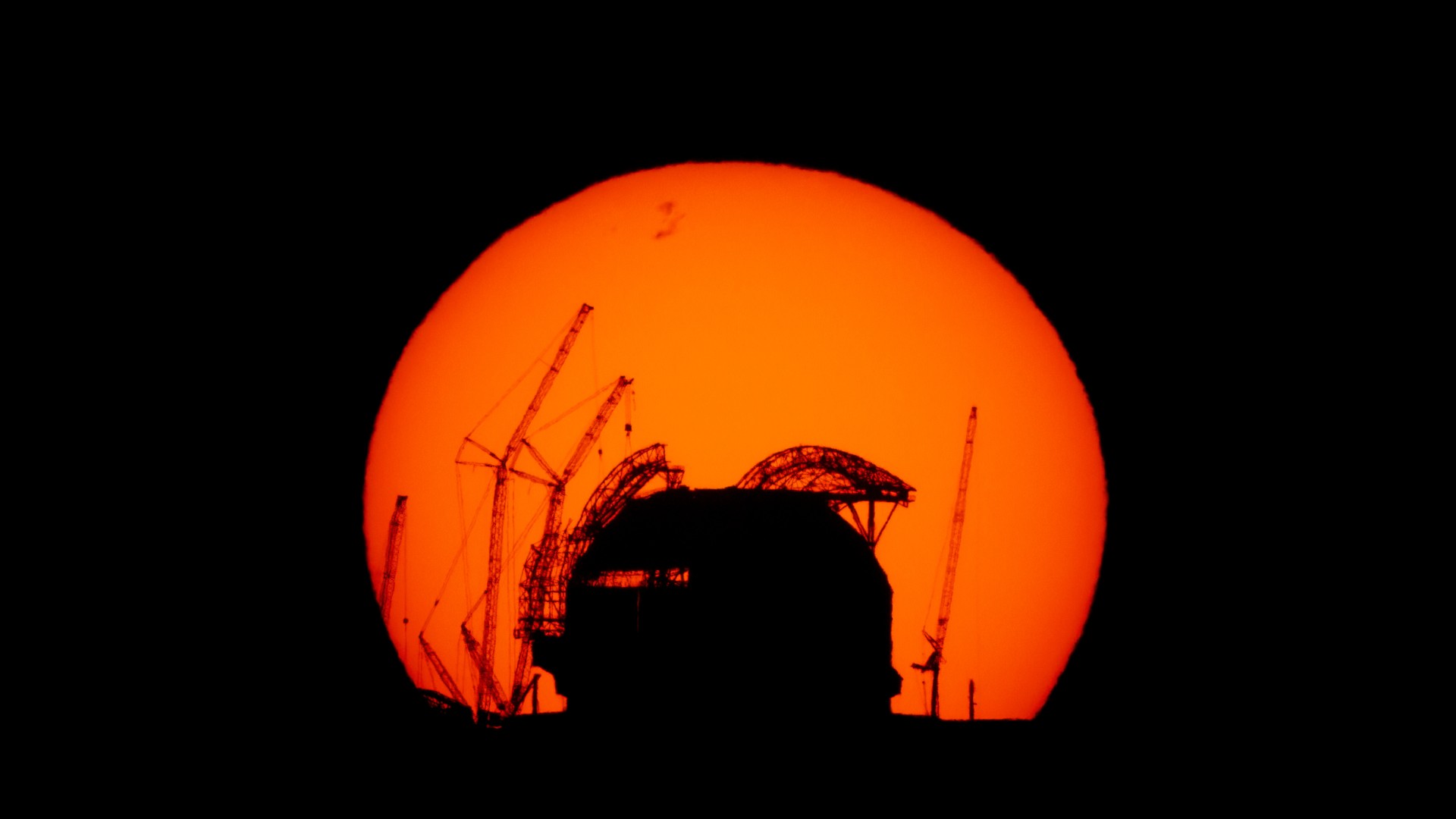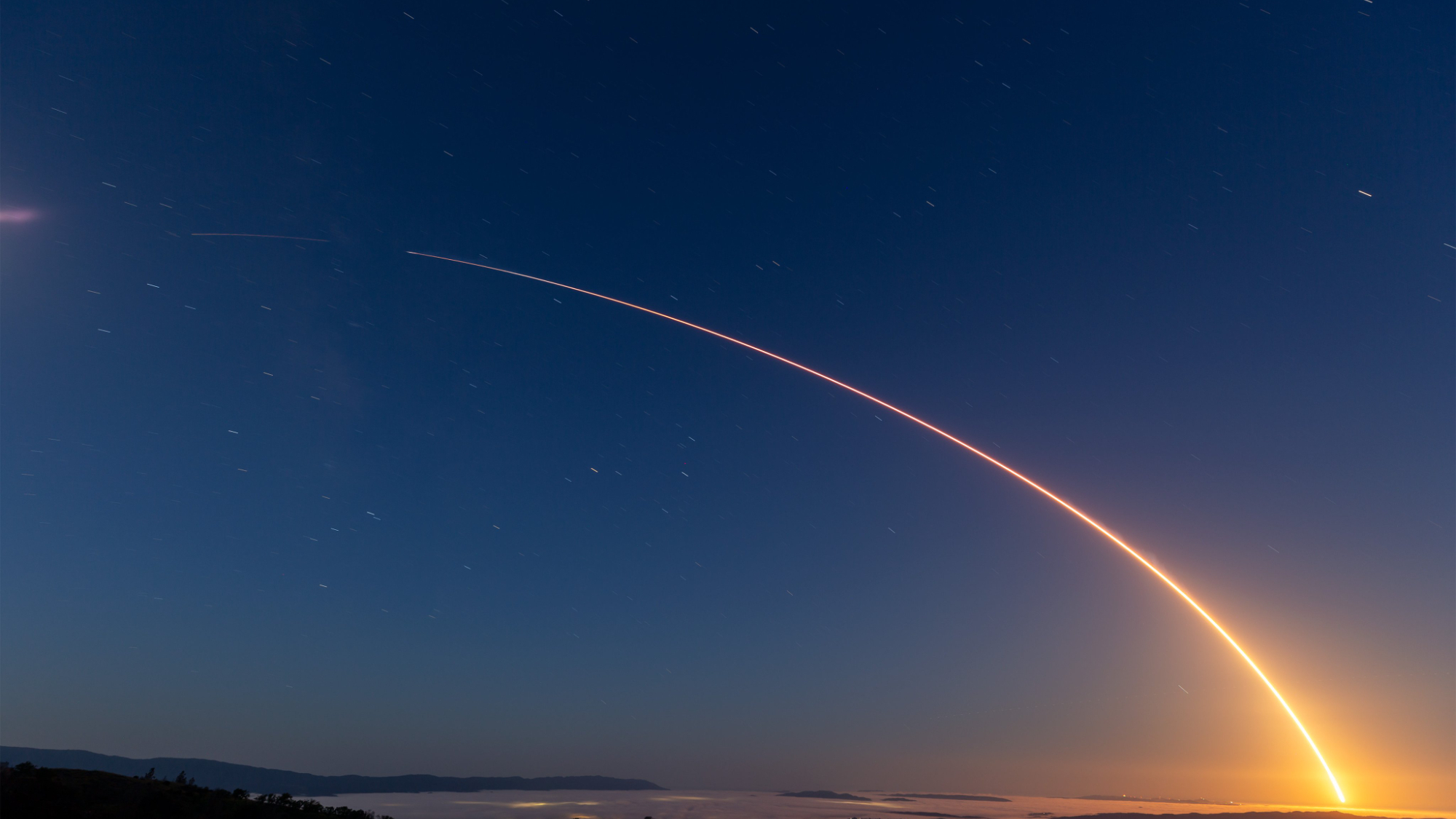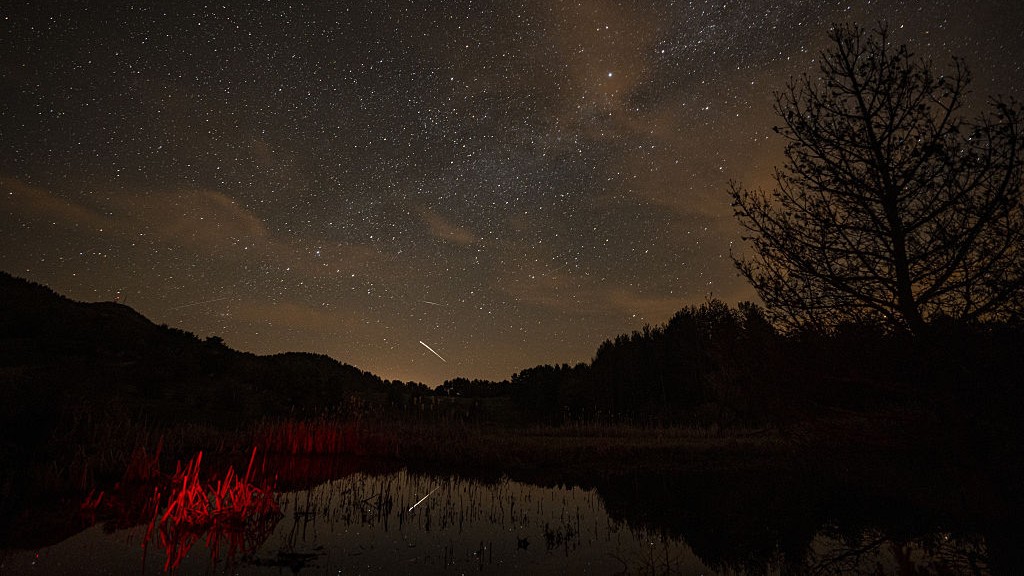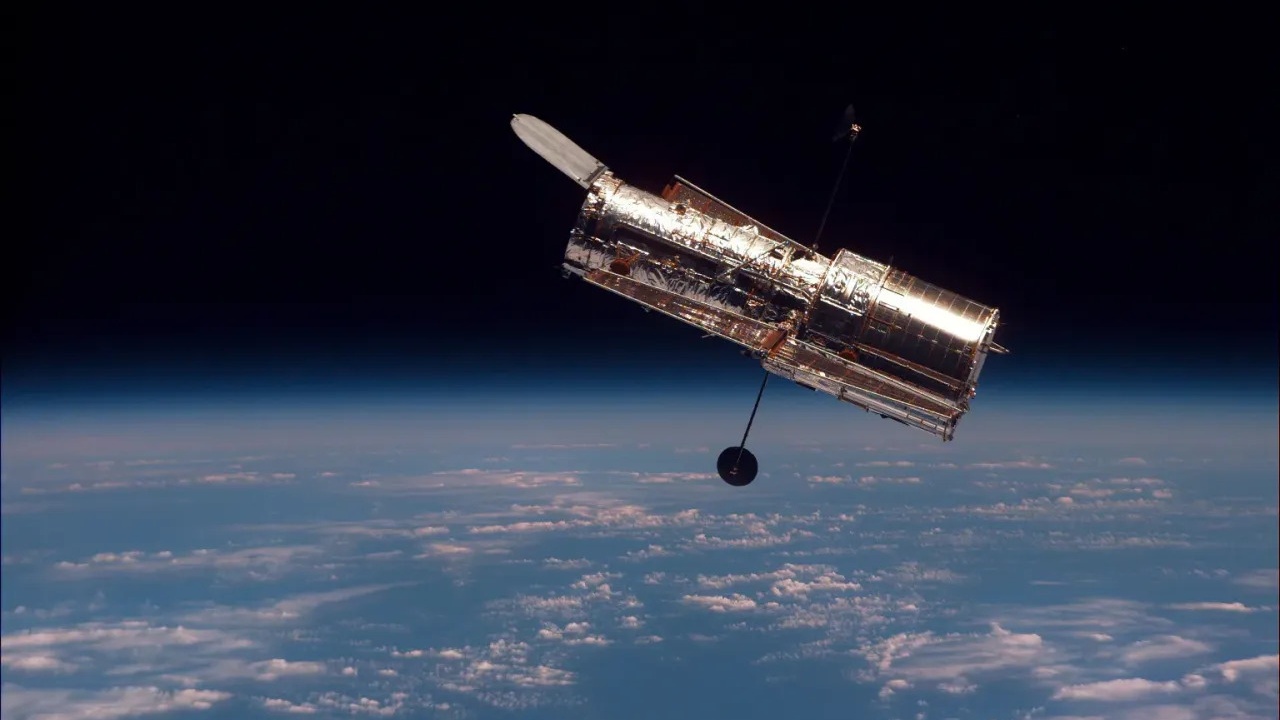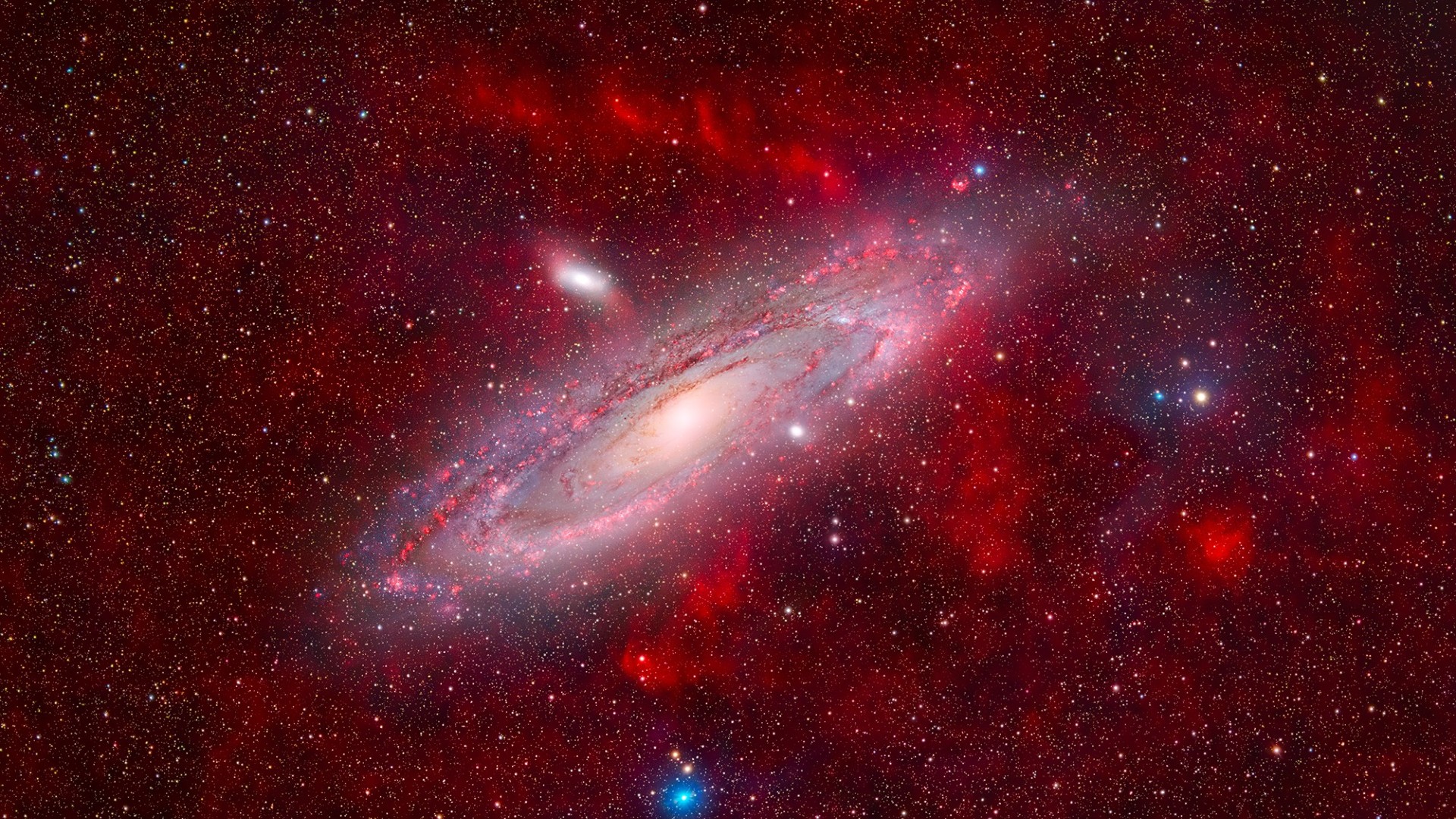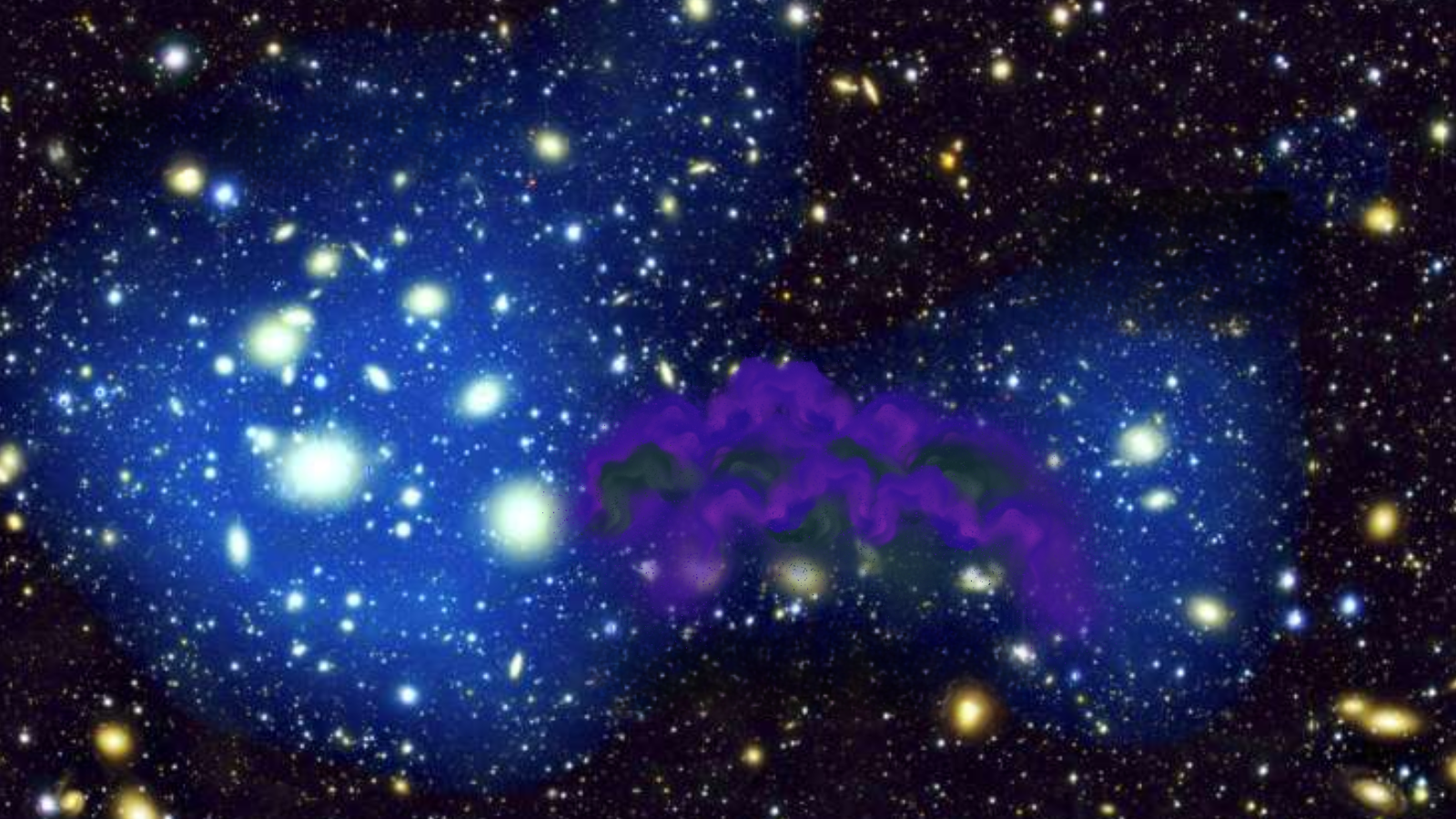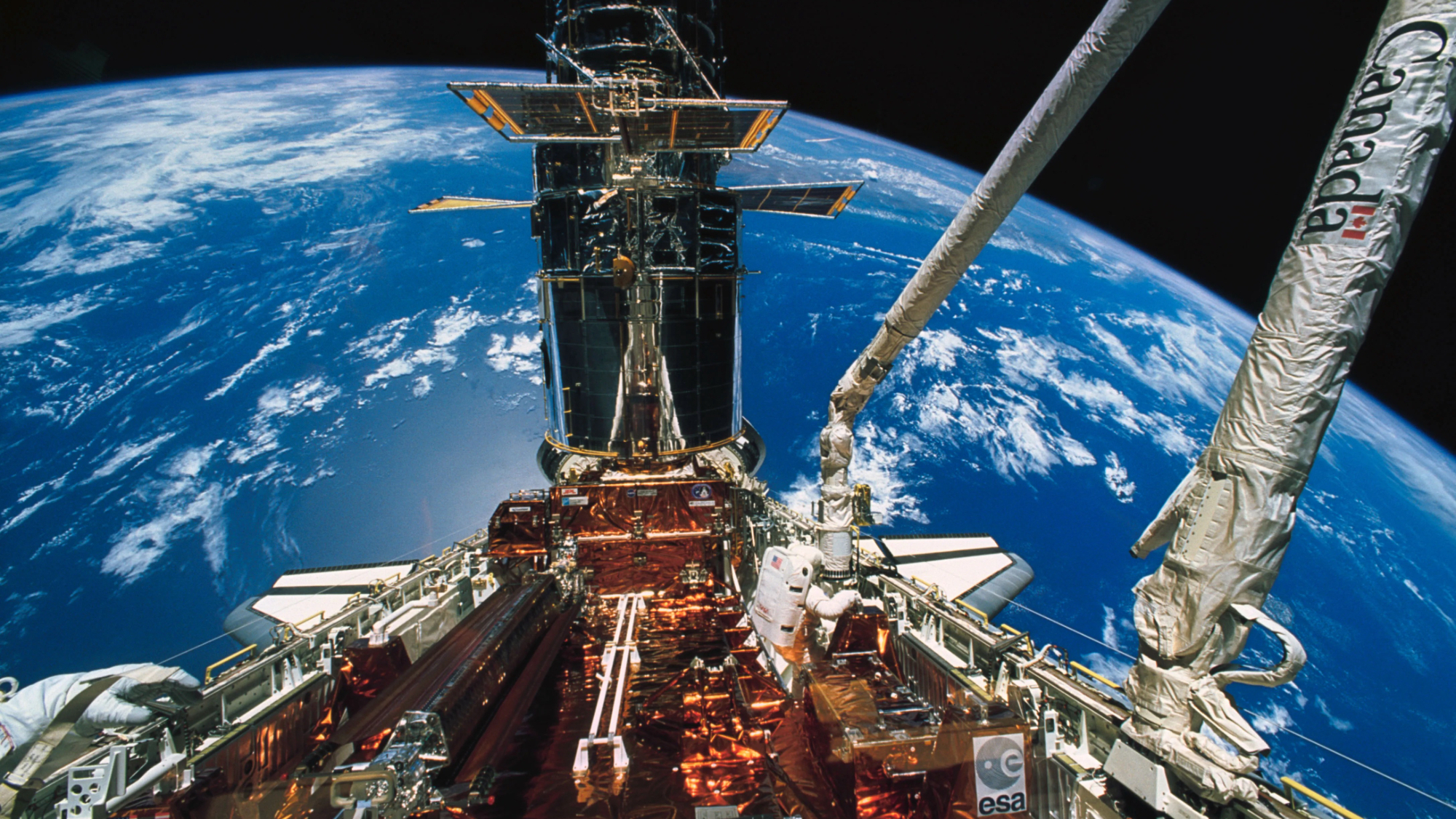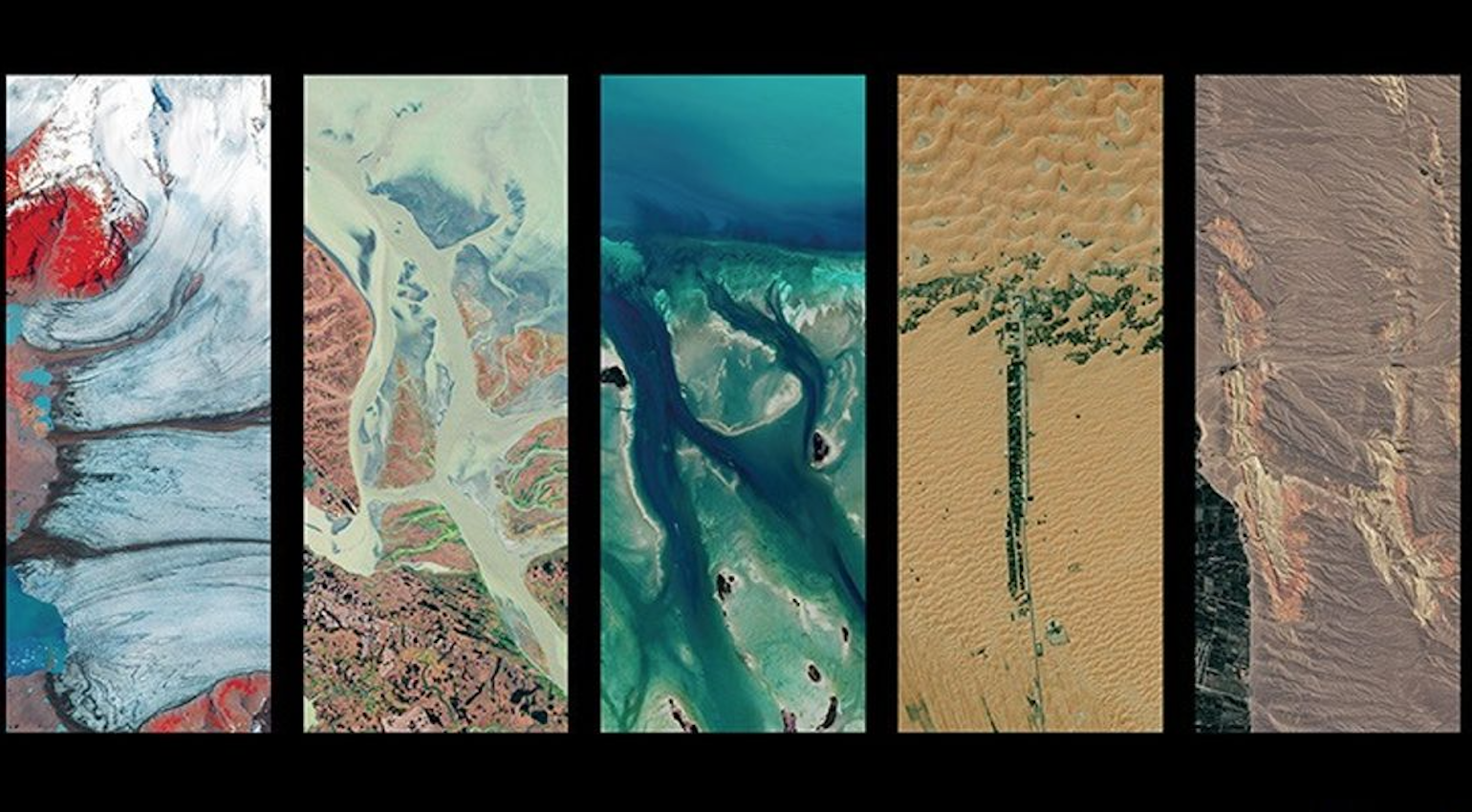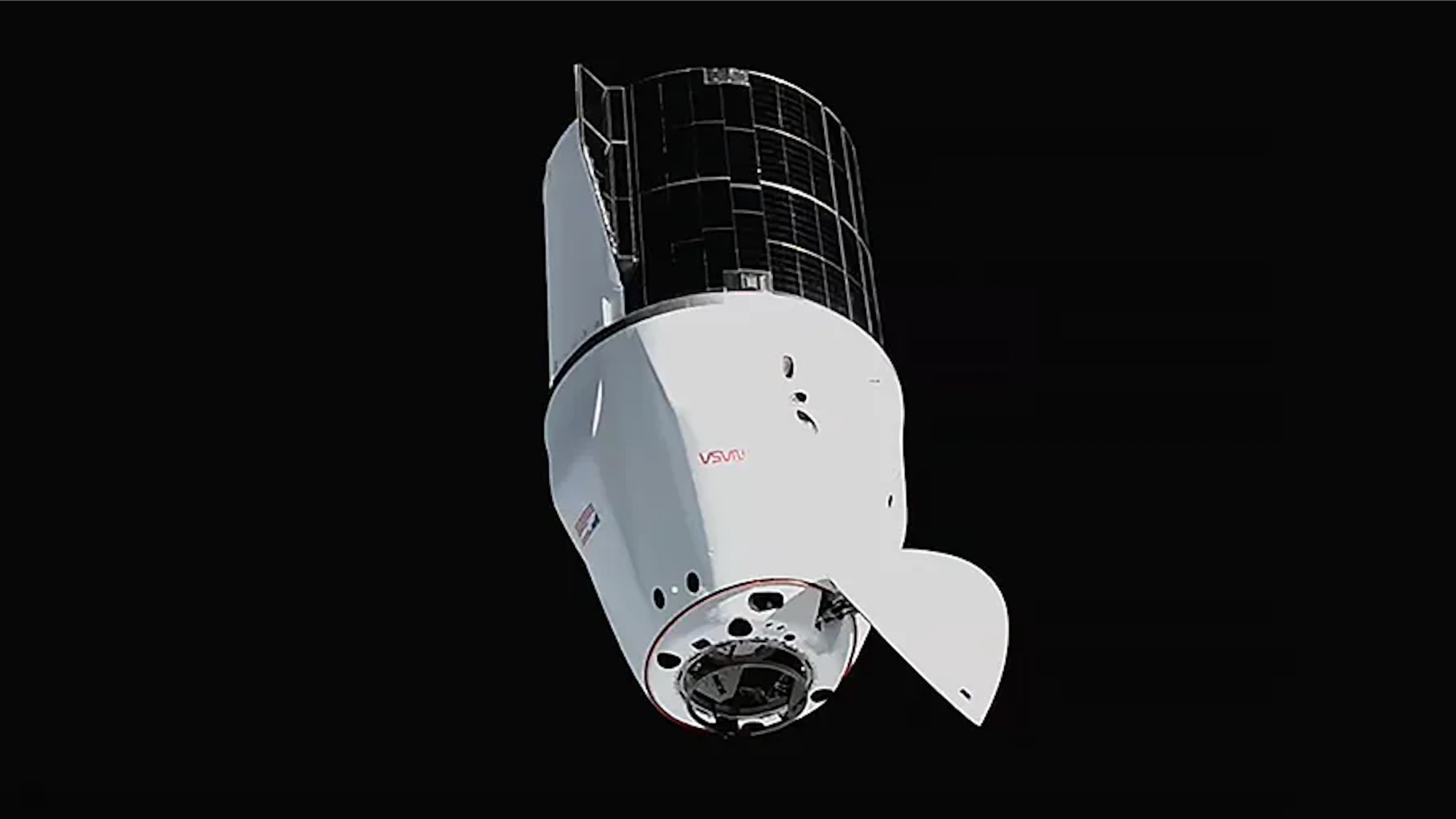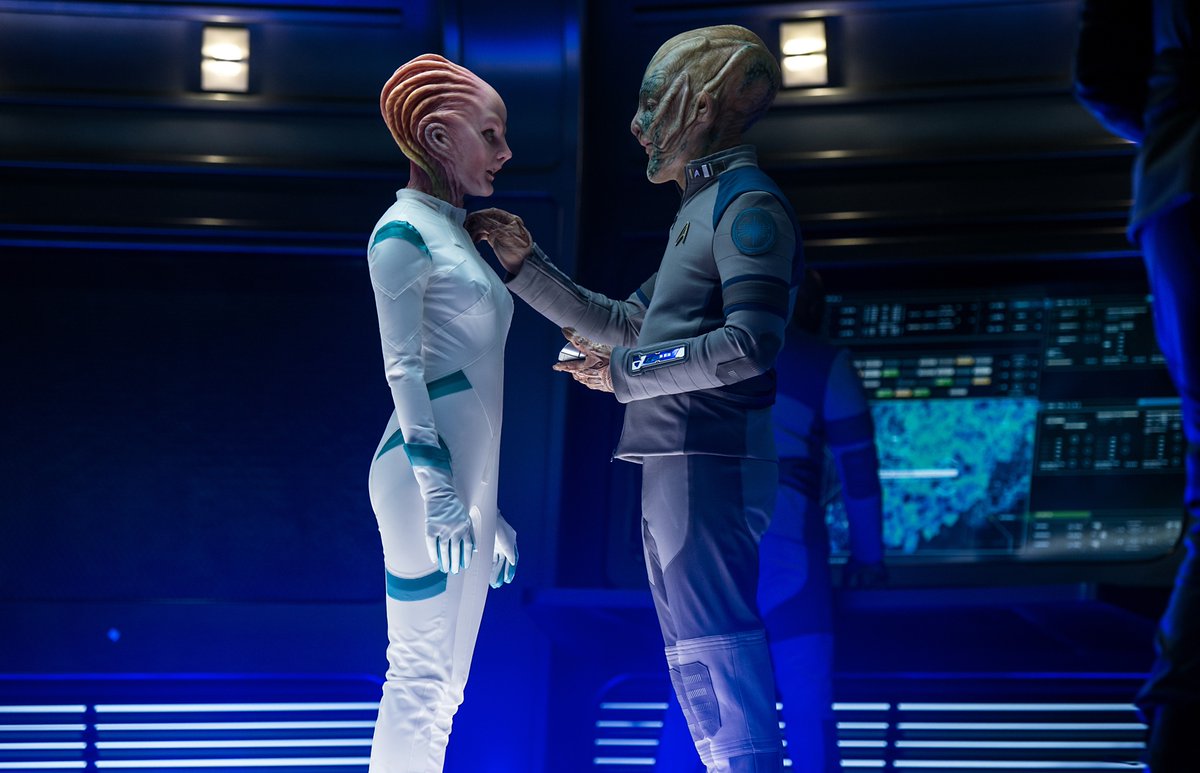
Jeff Bezos is about to score some serious nerd points in his battle with fellow spaceflight billionaire Elon Musk.
Bezos — who runs the private spaceflight company Blue Origin, as well as Amazon.com — has a cameo in the new movie "Star Trek Beyond," which opens in theaters across the United States this Friday (July 22).
Based on his makeup job, it's safe to assume that Bezos plays some sort of alien in the film. You can see it for yourself in an amazingly surreal video that Bezos posted today (July 20) via his Twitter account, @JeffBezos. In the brief video, a scaly, ridge-faced Bezos tucks into some lunch with a plastic fork, and then washes the repast down with some bottled water (which he drinks using a blue plastic straw). [The Evolution of 'Star Trek' (Infographic)]
"Bucket list. Cast, crew and Justin Lin @trailingjohnson were amazing. #StarTrekBeyond," Bezos tweeted along with the video today. (Justin Lin is the new film's director.)
So Bezos has now drawn level with Elon Musk, the founder and CEO of SpaceX, in cinematic accomplishments. Musk had a cameo in the 2010 film "Iron Man 2," appearing at a party with protagonist Tony Stark, the billionaire industrialist played by Robert Downey Jr. (Downey and Jon Favreau, the director of the first two "Iron Man" films, have both said that they modeled the movie version of Tony Stark on Musk. Plus, SpaceX's Hawthorne, California, headquarters served as a shooting location in "Iron Man 2.")
It's worth noting, however, that Musk played himself in "Iron Man 2" and had a speaking part: Stark compliments him on SpaceX's "fantastic" Merlin rocket engines, and Musk replies that he's "got an idea for an electric jet."
So we'll have to see just what Bezos does in "Star Trek Beyond." If he neither talks nor receives kudos from another character about Blue Origin's New Shepard suborbital space vehicle, we may have to give the lead back to Musk.
Get the Space.com Newsletter
Breaking space news, the latest updates on rocket launches, skywatching events and more!
Both Bezos and Musk have also been on "The Simpsons," voicing cartoon versions of themselves. Bezos appeared in a December 2008 episode called "The Burns and the Bees," while Musk starred in a January 2015 episode titled "The Musk Who Fell To Earth."
Musk also appeared in an episode of "The Big Bang Theory" last year, and both men have made the evening-talk-show rounds over the years.
The Bezos-Musk rivalry extends beyond the world of make-believe, of course. Both Blue Origin and SpaceX are developing crew-carrying spacecraft, and both have been building and demonstrating reusable rockets — a technological leap that Bezos and Musk have said could slash the cost of spaceflight and open up the heavens to exploration and human settlement.
Blue Origin notched a big reusability milestone in November 2015, when New Shepard landed safely after a brief flight to suborbital space.
Musk congratulated Bezos and Blue Origin on the accomplishment at the time via Twitter. (His handle is @elonmusk.)
"But credit for 1st reusable suborbital rocket goes to X-15 en.m.wikipedia.org/wiki/North_American_X-15 … And Burt Rutan for commercial en.m.wikipedia.org/wiki/SpaceShipOne … ," Musk added, referring to the U.S. Air Force/NASA X-15 experimental rocket plane and SpaceShipOne, the Rutan-designed vehicle that won the $10 million Ansari X Prize in 2004 after reaching space twice in the span of two weeks.
Musk also said in another tweet that it's much tougher to land a rocket during an orbital launch — as SpaceX had been trying to do with its two-stage Falcon 9 — than during a suborbital flight, as Blue Origin did.
Bezos pushed back against such comments during a news conference on Nov. 24.
"You have to remember, SpaceX is only trying to recover their first-stage booster, which is suborbital. The second point that I would make is that the SpaceX first stage does an in-space deceleration burn to make their re-entry environment more benign," Bezos said. "So if anything, the Blue Origin booster that we just flew and demonstrated may be the one that flies through the harsher re-entry environment. And then finally, the hardest part of vertical landing and reusability is probably the final landing segment, which is the same for both boosters."
SpaceX made a big breakthrough of its own on Dec. 21, successfully landing the first stage of a Falcon 9 during a satellite launch from Cape Canaveral Air Force Station in Florida. The company has since landed four more boosters — one at Cape Canaveral, and three others on robotic "drone ships" stationed in the Atlantic Ocean.
Blue Origin has launched and landed the same New Shepard vehicle three more times as well, with the latest touchdown coming just last month.
This string of successes appears to have calmed some jangled nerves, for the war of words between Musk and Bezos has subsided.
Follow Mike Wall on Twitter @michaeldwall and Google+. Follow us @Spacedotcom, Facebook or Google+. Originally published on Space.com.
Join our Space Forums to keep talking space on the latest missions, night sky and more! And if you have a news tip, correction or comment, let us know at: community@space.com.

Michael Wall is a Senior Space Writer with Space.com and joined the team in 2010. He primarily covers exoplanets, spaceflight and military space, but has been known to dabble in the space art beat. His book about the search for alien life, "Out There," was published on Nov. 13, 2018. Before becoming a science writer, Michael worked as a herpetologist and wildlife biologist. He has a Ph.D. in evolutionary biology from the University of Sydney, Australia, a bachelor's degree from the University of Arizona, and a graduate certificate in science writing from the University of California, Santa Cruz. To find out what his latest project is, you can follow Michael on Twitter.
